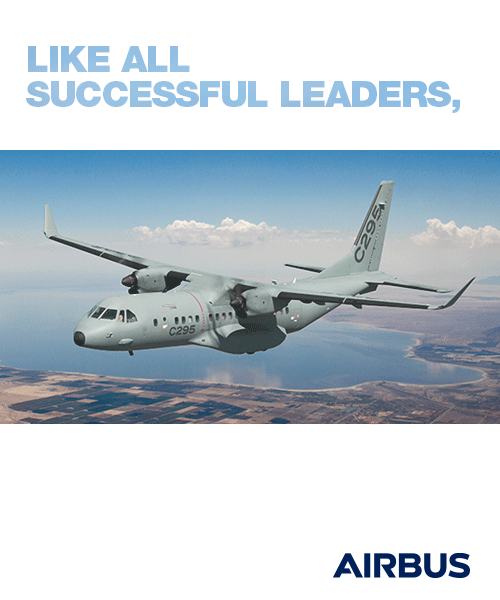
Pakistani army chief, Gen Ashfaq Parvez Kayani, in the days when Washington still believed that Pakistan could be salvaged. That is changing rapidly. Over the last week, the US has bluntly warned Kayani: clean up your act, or we will do it for you.
by Ajai Shukla
Business Standard
26th Sept 11
An emergency meeting of Pakistan's top military commanders on Sunday highlights the gathering storm in US-Pak relations. It remains to be seen whether this grim-faced clique will submit to Washington's diktat to crack down on the Haqqani network. Going by Islamabad's public bluster after Washington's flat accusation last Thursday of ISI-Haqqani complicity, it might seem that Pakistan's military will choose defiance over compliance. In recent spats, however, both sides have always chosen to step back from the brink.
The winds of this latest crisis have blown in from Afghanistan. Going by the timing, the trigger was apparently the assassination last Tuesday of Burhanuddin Rabbani, a former president who headed Afghanistan's High Peace Council, which pursued reconciliation with the Taliban.
Two days after Rabbani's murder, Admiral Mike Mullen, chairman of the US Joint Chiefs of Staff, bluntly accused the Pakistani army of using terror as a weapon when he told the Senate Armed Services Committee, "the Haqqani network acts as a veritable arm of Pakistan's Inter-Services Intelligence agency."
Without mentioning the Rabbani killing, Mullen held the ISI-backed Haqqani network responsible for the truck bomb attack on a NATO base near Kabul on September 10, which killed five civilians and injured 77 coalition soldiers. Mullen also accused the Haqqanis of masterminding the suicide attack on September 13 on the US embassy in Kabul, in which 16 Afghans were killed. And, of the suicide attack on Kabul's Intercontinental Hotel on June 28, which killed 11 civilians.
Also on Thursday, the US passed the Senate Appropriations Bill, which blocked at least $800 million worth of security assistance to Pakistan unless it took action against the Haqqani network. On Saturday, the US Central Command chief, General James N Mattis, met the Pak army chief, General Pervez Kayani, reportedly warning him that America would respond to further Haqqani provocations with retaliatory attacks into Pakistan.
Rawalpindi now faces a three-front squeeze — political, financial and military — on its relationship with the Haqqanis. The jury is still out on whether the Haqqanis were behind the Rabbani assassination, which, in its multiplicity of suspects, has the makings of a classic whodunit. Was it the Taliban scuttling the dialogue or a faction controlled by the ISI? Could it have been Al Qaeda? Or was this fallout from Rabbani's past? As a Tajik leader in the early 1990s, he had presided over waves of bloodletting in brutal ethnic feuding.
Which Taliban?
The Taliban — a catchall scapegoat for violence in Afghanistan — comprises several factions that increasingly work at cross-purposes. The confused Taliban statements that followed Rabbani's killing suggest serious internal disagreements. Zabiullah Mujahid, the Taliban spokesperson, began by confirming that the Taliban killed Rabbani. Soon thereafter, Taliban websites denied any role in the attack.
This confusion could reflect a vertical split within the Taliban. Mullah Omar, the so-called Amir-ul-Momineen (Commander of the Faithful), who heads the Quetta Shoora, is the Taliban's supreme authority.
But, his old-school Afghan mujahideen, while ruthless on the battlefield, scorns suicide attacks of the kind that despatched Rabbani. Omar's agenda is nationalist Afghan: evicting foreign forces from his country. He would hardly murder Rabbani, a countryman working for Afghan unity.
Afghans recall that Mullah Omar kept dialogue open with the Northern Alliance even at the peak of their fighting in the late 1990s. Former Taliban minister Mullah Abdul Salam Zaeef describes in his autobiography a midnight meeting at Omar's behest with his Tajik opponent, Ahmed Shah Masood, both leaders negotiating peace terms while sitting cross-legged on the ground between the Taliban-Northern Alliance frontlines. It was an abortive attempt, but it suggests that Mullah Omar is not averse to dialogue.
But, the Haqqani network, the Taliban's other main branch and the Quetta Shoora's brutal alter ego, has a far more radical approach. Armed, funded and directed by the ISI to split the Taliban, the Haqqani network is expert in suicide attacks. Closely linked to Arab ideologues, the Haqqanis embrace a pan-Islamic ideology, rather than an Afghan nationalist one. If the ISI feared that Rabbani's dialogue with the Quetta Shoora could marginalise Rawalpindi, the Haqqani network would be employed to deliver a reminder of Pakistan's influence. For that reason, it is the prime suspect.
Another suspect is Al Qaeda but, surprisingly, that possibility has been little discussed. Rabbani's killing mirrors in method the assassination of Northern Alliance leader Ahmed Shah Masood in September 2001. Al Qaeda executed that attack, two days before 9/11, expecting that a grateful Taliban would shelter Al Qaeda from inevitable US retaliation after the New York attacks.
Masood's two assassins posed as Arab tele-journalists, biding their time for weeks before being granted an interview with their target. Finally face-to-face with Masood, they detonated an explosive-packed camera. In Rabbani's murder, the assassin also waited patiently after dangling the bait: an important message from senior Taliban. Instead of an exploding camera, there was an exploding turban, but the effect was just as lethal.
Despite the predictions of a "deathblow to the Taliban dialogue&", the outreach to the Taliban seems set to continue. Much of the anti-Taliban emanates comes from the still-influential Tajik lobbies, which have always firmly opposed any reconciliation with the Taliban.
But, Rabbani will be missed; he played an important symbolic role as the High Peace Council chief, his presence indicating the concurrence of the minorities to reconciliation with the Pashtuns, a 40 per cent majority in Afghanistan. However the dialogue continues on multiple tracks, most of these insulated from Rabbani.























Col...Is there any strategy behind PM's Iran support? My imagination runs wild at mere mention of Iran, as i believe Pak's strategy of finding strategic depth in Afghanistan can be converted into strategic trap where Pak gets surrounded and bogged down and with resources committed to all 3 fronts. However, finale for this piece will be in next decade with fourth front opening by its long time friend China - some sign already visible with unimpressive 6 visits by Pak delegation to Kashgar
ReplyDeleteThere is no crisis. I will call it a crisis when Tomahawks are on their way to Rawalpindi.
ReplyDeleteThis is just for domestic consumptions. US obvious, election, bad economy etc. Pakistan, PA gets to "stand up" against the "Great Satan"! as a gift for the OBL raid insult.
This will blow over as the usual game plan and US will resume the millitary aid to PA. We are reading too much into this.
Col. Shukla - Trust you to notice the similarities in the modus operandi between the assassinations of the lion of Panjshir and Rabbani. Well thought out, sir.
ReplyDeleteWhat is your take on Sen. Carl Levin's hint about direct action with respect to the Haqqanis?
Once the US & NATO forces are preparing to leave Afghanistan, the Pak-ISI-Arab-Taliban axis is coming out more and more in to open. Northern alliance is going to be their first target.
ReplyDeletePak has already out mauouvered india...iran has no respect for india today...it is completely in USA camp...for iran india is just another market and the balance is tilted in their way. Russia and CIS have seen what Pak are capable of and would prefer to have some influence so are on-board. With regards to the northern alliance...listen to what Fahim et el are saying...live and let live....they have been assured that they will not be eliminated and would be part of the national process, even the taliban acknowledge this...USA will no doubt make noises but pak owns one heck of a real estate and it aint moving!
ReplyDelete@SherKhan
ReplyDeletePakistan out mauouvered India? I cannot but laugh at this perception.
Let us step back a bit.
Pakistan has 2 benefactor(China & Saudi) and 1 umbilical chord(US). Pakistan being Pakistan is now fighting the umbilical chord. The nation which saved Pakistan's a*** everytime is now on the verge of unleashing B-2 and B-52's.
So from Indian perspective. America TICK.
China. Pakistan being Pakistan and the dream of 'Ghazi warriors', once US leaves Afganistan holy warriors will turn on to China. Xinhganj province remember.
With Indian having money, US having weapons, Vietnam being happy to let Indian ships in.
So I would say China TICK
So that leaves Saudis. Well what can I say.
All these by just sitting on our backside. So yeah, there is a reason India did not invade Pakistan after 26/11 Mumbai attack. Now US will do the dirty job for India. We will just sit on our backside and watch the fun.
@Khan - Think Hard...this is your condition when we have not even lifted our small finger...Imagine the deluge and stink you will be in when we decide to use our middle finger.
ReplyDeleteGood thing of Pak strategy is that it is always a overkill...after all this is not a nuclear chain reaction that can controlled by stolen and borrowed technologies.